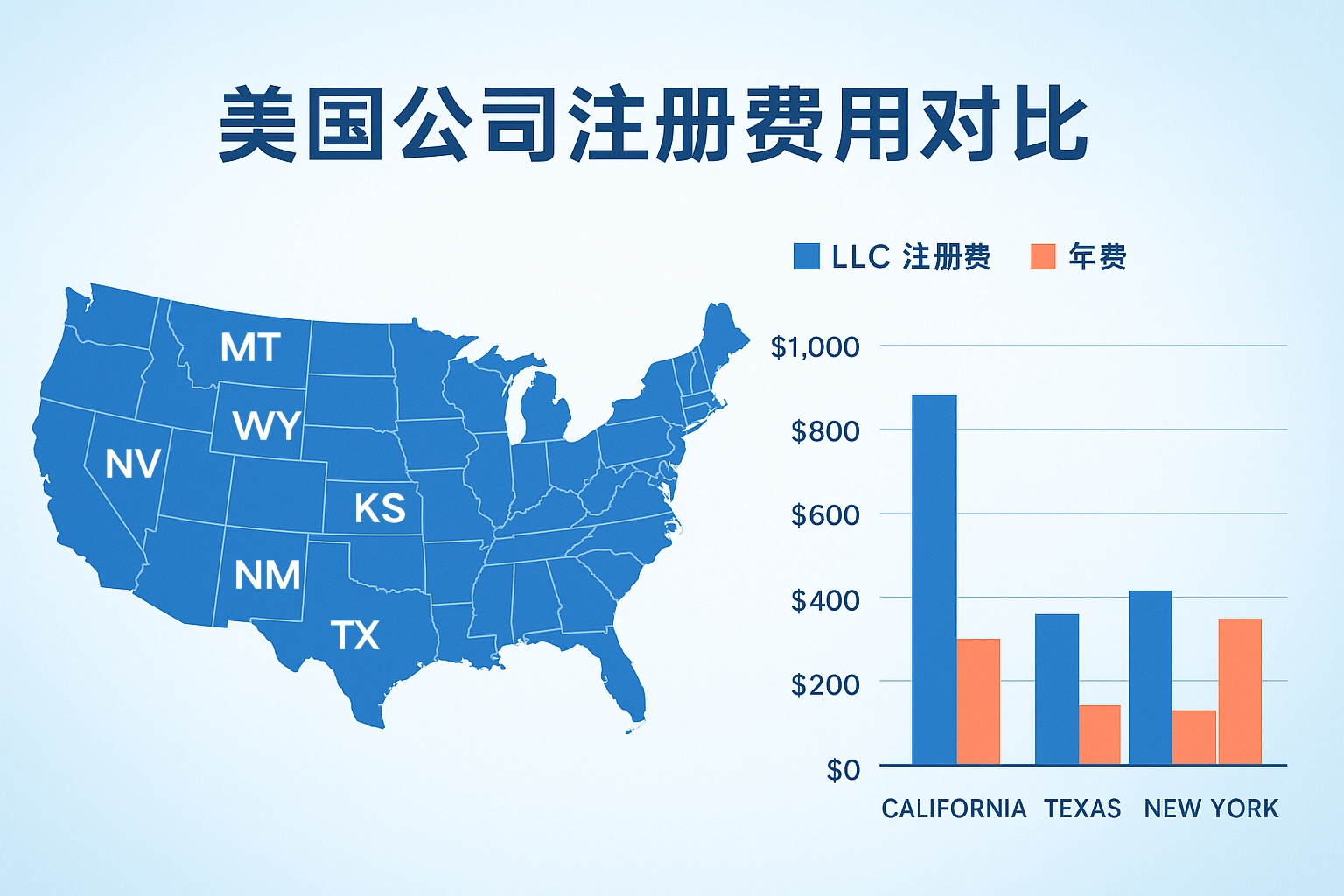What’s the Difference Between US Company Annual Report and Tax Filing? Stop Confusing Them!

Every year, over 30% of Chinese business owners get into trouble due to confusing US company annual report with US company tax filing, resulting in company dissolution, frozen cross-border e-commerce accounts,or fines. This article will break down the essential differences in plain language, helping you maintain compliance in your cross-border business.
US Company Annual Report
The essence of the annual report is to submit a proof of existence to the Secretary of State of the company’s registration state (for example, Wyoming, Delaware). Its core purpose is not tax payment but updating the company’s basic information, such as registered address, board of directors, and shareholder structure, while paying the Franchise Tax. This fee is essentially a state-issued license fee to allow the company to exist and is unrelated to the company’s profits. Failure to submit the annual report on time may affect the company’s status, result in penalties or late fees, and prolonged neglect may lead to forced company dissolution.
US Company Tax Filing
The core of tax filing is reporting the company’s actual operating income to the IRS and state tax authorities and paying income taxes. Filing depends on whether the company has income: even if it is at a loss, a zero return must be filed (to prove no taxable income). Profitable companies must pay federal income tax at 21% plus applicable state taxes. Tax filing fulfills the company’s legal tax obligations, and failure to file may trigger IRS penalties and audits.
What Does a US Company Annual Report Do?
Each year, companies submit a report to their registered state to confirm three things:
Whether the registered address is valid.Whether the registered agent can receive legal documents properly.Whether there are changes in directors or shareholders (disclosure required in some states).
At the same time, the company pays the Franchise Tax. Note: this is not federal income tax! Not all states have a franchise tax; it depends on the state’s regulations. Examples for popular cross-border e-commerce registration states:
Delaware: C Corp must pay franchise tax and submit the annual report by March 1 (minimum $175 if profit ≤ $5,000, higher profits calculated by formula); LLCs are exempt from reporting but pay $300 annual tax.
California: All companies, regardless of operation, pay a fixed $800 franchise tax annually, due on the last day of the registration month.
What Does a US Company Tax Filing Do?
Depending on the company type, the company reports income and pays taxes to the IRS and state tax authorities:
C Corporation: Submit federal tax form Form 1120 (21% federal tax) and applicable state tax forms (e.g., California Form 100).LLC / S Corporation: Submit Form 1065 / 1120S (profits pass through to shareholders’personal tax returns).Companies with no operations still must submit zero returns to prove no taxable income.
Common Pitfalls for Chinese Business Owners
Confusing annual report with tax filing: paying franchise tax alone thinking all obligations are complete → actually underpaid income tax → accumulating late fees (5% per month).
Misunderstanding LLC vs C Corp rules: Chinese shareholders of LLCs need an ITIN and pay personal income tax (overall effective tax rate often exceeds 50%) but think they are taxed like a C Corp; C Corps can retain profits with only 21% corporate tax → dividends taxed later in China (more tax planning flexibility).
Ignoring state taxes: operating in California or New York requires separate state income tax filings (8%-13% rates).
US Company Tax Filing Deadlines and Penalties
Federal tax filing: April 15 of the following year (extension to October 15 possible, but taxes still due by original deadline).State tax filing: varies by state (e.g., California: April 15).Late filing penalties: 5% of unpaid taxes per month (maximum 25%) + interest.
Example: Delaware C Corp with $200,000 Amazon Annual Profit;Annual report obligation: Pay Franchise Tax (~$400) and update registered agent address by March 1 → ensures company remains in good standing.
Tax filing obligation: Submit Form 1120 by April 15 → pay $42,000 federal tax → retain $158,000 for reinvestment.
If only tax filing is completed but annual report is missed → March 1 missed $400 tax → company marked Not in Good Standing → US bank account frozen → Amazon funds inaccessible → reinstatement costs $1,200 attorney fees + penalties.
Compliance is the foundation for long-term business operations. For any questions about US company annual report and tax filing, GuanSai Tax Services provides US CPA and IRS-authorized CAA team support, offering local, one-on-one professional compliance guidance to help you legally save taxes and operate confidently.


+8618038173631


hi@easytaxs.com


StartBizUSA

Please scan WeChat QR code for professional service
STAY IN THE LOOP
Subscribe to our free newsletter.
For many entrepreneurs, registering a company in the US is a key step toward launching a new business chapter and entering the global market. However, one of the most practical and confusing questions is: How much startup capital is actually needed? The answer varies greatly,it depends on which state you choose to register in. Each
When you register a US company, you typically incorporate in one state. As your business grows, you may want to expand into other states. This is where interstate business operations come into play. A common question arises: Do I need to register a new company in another state?Legally, this process is called Foreign Qualification. If
Registering a US company in 2025 is undoubtedly one of the top choices for entrepreneurs and business owners looking to expand overseas. The US market, with its massive consumer base, mature capital markets, flexible tax system, relatively simple company registration process, low maintenance costs, strong intellectual property protection, and transparent legal framework, continues to attract
When you plan to register a US company, one of the first and most confusing questions for many cross-border e-commerce entrepreneurs is: LLC or C Corp or S Corp? Choosing the wrong structure can lead to higher tax burdens and even affect your future compliance operations. Many business owners only discover during tax season that








